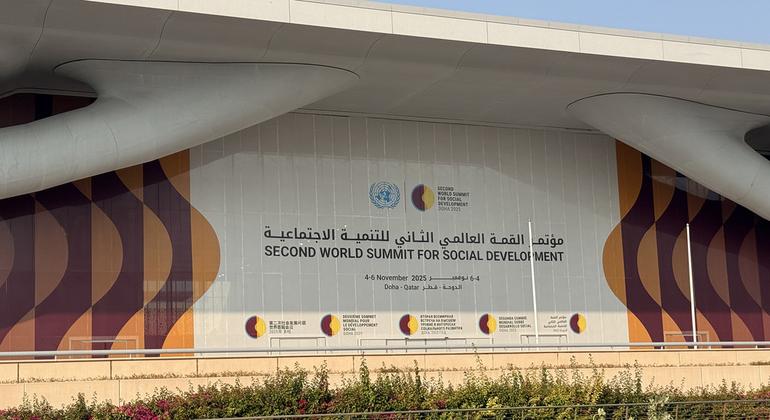As global challenges intensify, governments, civil society, and international partners gathered in Doha this Monday to discuss concrete solutions that promote social development and address urgent crises such as rising hunger and poverty, inequality, and instability caused by climate change. The discussions took place during the Doha Solutions Forum for Social Development and at the first meeting of leaders of the Global Alliance Against Hunger and Poverty, as part of the Second World Summit for Social Development.
In opening the Forum, UN General Assembly President Annalena Baerbock highlighted that the event symbolizes a shift in how to address issues, moving from “admiring the problem” to acting on proven solutions. She lamented that all too often, we face situations where there is no clear solution to the observed suffering, although she emphasized that the focus of this forum seeks to learn from experiences and unite efforts to meet common principles.
Organized by Qatar in collaboration with France and the UN Department of Economic and Social Affairs (DESA), the Forum brought together representatives from various sectors to share policies and projects that have demonstrated positive impacts in eradicating poverty and promoting social inclusion. Baerbock mentioned initiatives in Sierra Leone, Sri Lanka, and India, where innovation and collaboration have enabled the opening of bank accounts and improved access to social services.
UN Deputy Secretary-General Amina Mohammed stressed the urgency of moving from commitment to action, emphasizing the need to implement fair social contracts tailored to current realities. “We must scale up solutions that work,” she urged, encouraging participants to bring those experiences back to their communities.
The event also included the first high-level meeting of the Global Alliance Against Hunger and Poverty, in a context where more than 670 million people suffer from hunger and over 2.3 billion face food insecurity. Baerbock emphasized that the hunger crisis is not a result of a lack of food but rather of inequalities, conflicts, and inadequate political decisions. Additionally, it was warned that the climate situation could exacerbate food insecurity, with the risk of hundreds of millions more being pushed into hunger.
The Global Alliance, composed of nearly 200 members and created during Brazil’s G20 Presidency in 2024, aims to strengthen coordinated action by promoting social protection and supporting climate-resilient agriculture. “Ensuring that every person has enough to eat is entirely possible,” concluded Baerbock, emphasizing that a world free of hunger and poverty is not a distant dream but an achievable goal through collaborative work.
Source: MiMub in Spanish
